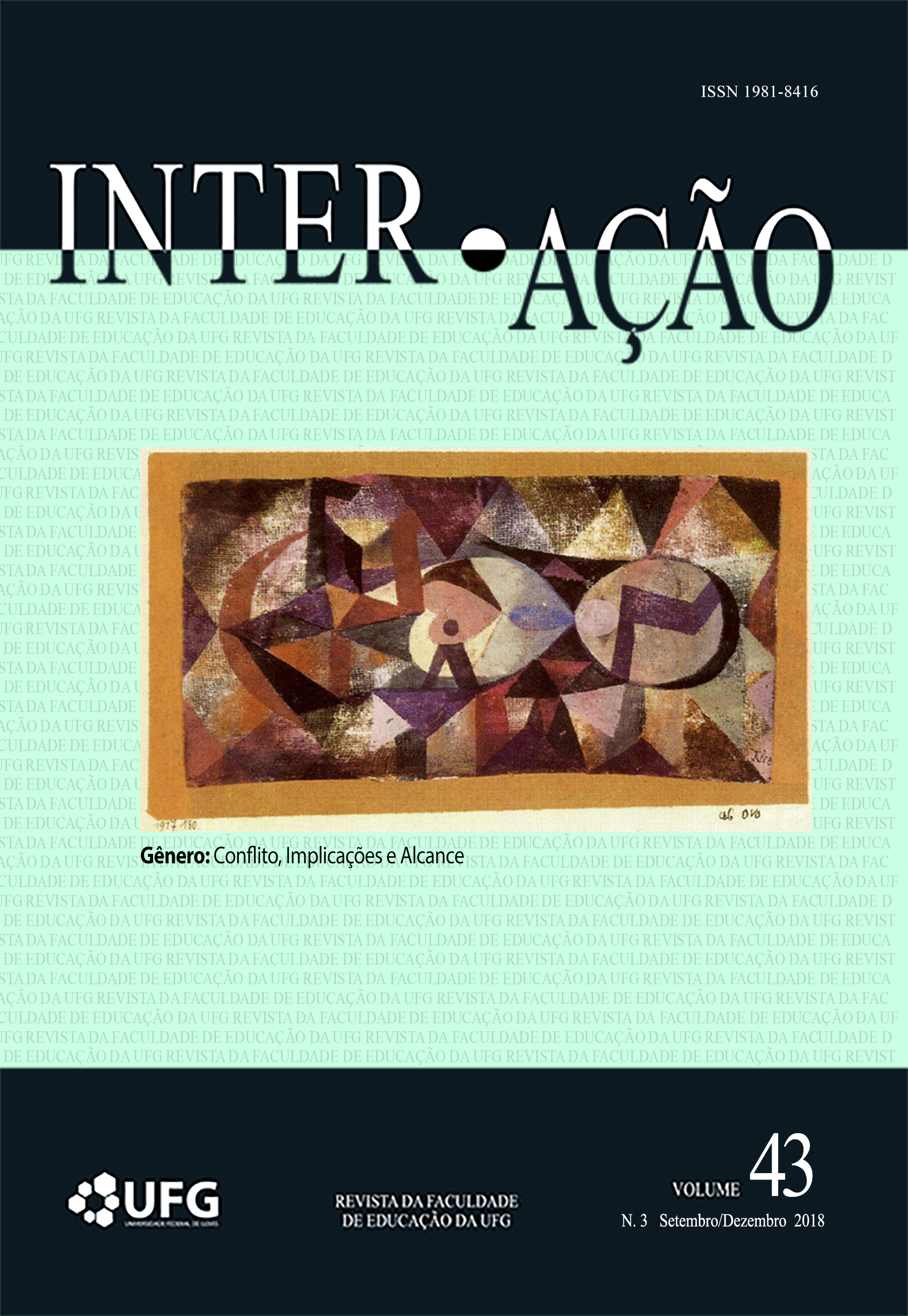Gênero e brincadeiras na educação infantil: as relações entre professoras, meninas e meninos
DOI :
https://doi.org/10.5216/ia.v43i3.48963Résumé
O presente estudo qualitativo, de cunho etnográfico problematizou as relações de gênero nas brincadeiras de meninas e meninos e no cotidiano de professoras e crianças de uma escola municipal de Educação Infantil no interior do Tocantins. Foram realizadas observações em uma turma de pré-escola, com crianças de 4 a 5 anos de idade. O caderno de campo foi utilizado para o registro descritivo das observações. Como bases teóricas foram eleitos os estudos de gênero e da área de Educação Infantil. Os resultados apontam que a escola reproduz práticas sexistas e reforça a heteronormatividade. Mas, as crianças transgridam as fronteiras de gênero impostas e mostram que outras formas de convivência são possíveis. Verificou-se a importância de discussões sobre essa temática na formação de professoras e professores
Téléchargements
Téléchargements
Publié-e
Versions
- 2026-01-30 (2)
- 2019-02-01 (1)
Comment citer
Numéro
Rubrique
Licence
© Revista Inter Ação 2018

Cette œuvre est sous licence Creative Commons Attribution - Pas d'Utilisation Commerciale 4.0 International.
A Inter-Ação utiliza como base para transferência de direitos a licença Creative Commons Attribution 4.0 para periódicos de acesso aberto (Open Archives Iniciative - OAI). Por acesso aberto entende-se a disponibilização gratuita na Internet, para que os usuários possam ler, baixar, copiar, distribuir, imprimir, pesquisar ou referenciar o texto integral dos documentos, processá-los para indexação, utilizá-los como dados de entrada de programas para softwares, ou usá-los para qualquer outro propósito legal, sem barreira financeira, legal ou técnica.
Autores que publicam neste periódico concordam com os seguintes termos:
1) Autores mantém os direitos autorais e concedem à revista o direito de primeira publicação, com o trabalho simultaneamente licenciado sob a Licença Creative Commons Attribution que permite o compartilhamento do trabalho com reconhecimento da autoria e publicação inicial nesta revista.
2) Autores têm autorização para assumir contratos adicionais separadamente, para distribuição não-exclusiva da versão do trabalho publicada nesta revista (ex.: publicar em repositório institucional ou como capítulo de livro), com reconhecimento de autoria e publicação inicial nesta revista.
3) Autores têm permissão e são estimulados a publicar e distribuir seu trabalho online (ex.: em repositórios institucionais ou na sua página pessoal) a qualquer ponto antes ou durante o processo editorial, já que isso pode gerar alterações produtivas, bem como aumentar o impacto e a citação do trabalho publicado.















